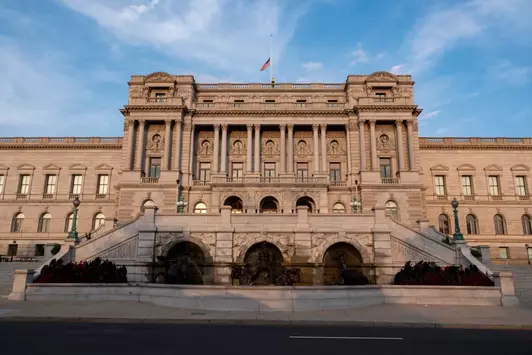
What happened to Elon Musk’s Copyright Office takeover? That’s the question lighting up search engines as news breaks about a major misstep in Musk’s ongoing efforts to influence AI regulation and intellectual property law. The high-stakes move to control the US Copyright Office—believed to be an effort to ease restrictions on training AI with copyrighted content—has gone down in flames, with unexpected political consequences. Elon Musk's calculated gamble has not only failed but may have triggered a backlash from unlikely allies within Donald Trump's administration.
Musk’s ambition to reshape AI copyright law hinged on a quiet but aggressive plan. Backed by the Department of Government Efficiency (DOGE), a shadowy faction known for pushing tech deregulation, the maneuver began when Trump abruptly fired Librarian of Congress Carla Hayden and Register of Copyrights Shira Perlmutter. With both key officials removed, it appeared Musk's allies were ready to reshape the nation's copyright policies to benefit companies like Tesla and xAI—particularly on the controversial issue of using copyrighted data to train generative AI systems.
The plan derailed as soon as the new appointees were revealed. Instead of loyal technocrats aligned with DOGE, the replacements—Paul Perkins and Brian Nieves—were MAGA hardliners with no love for Big Tech. Perkins, now acting Register of Copyrights, is a Justice Department veteran who served under Trump and made his name prosecuting fraud. Nieves, meanwhile, has a history of working on anti-tech investigations with Rep. Jim Jordan. The two were handpicked not to push Musk’s pro-AI copyright agenda, but to curb Silicon Valley’s growing influence over government policy.
What appeared to be a win for Musk quickly turned into a nightmare. Instead of streamlining AI policy in favor of generative models, Trump’s newly appointed officials are expected to scrutinize and regulate tech companies more harshly—particularly those seen as hostile to conservative media or prone to censorship. Todd Blanche, the acting Librarian of Congress and former Trump trial lawyer, further cemented the administration’s shift toward policing Big Tech rather than enabling it.
At the heart of this political drama is a broader legal battle: whether or not training AI models on copyrighted material constitutes fair use. The Copyright Office had recently released a pre-publication report signaling that such practices may violate copyright protections—especially when used for commercial purposes. Musk’s attempt to remove key decision-makers and replace them with friendlier faces was likely a preemptive strike against stricter AI regulations. But now, with MAGA loyalists in charge, the road ahead looks more uncertain for companies banking on AI training exemptions.
Elon Musk, a vocal proponent of AI development, may now face more opposition than ever. The new Copyright Office leadership is expected to take a hardline stance against unauthorized data scraping and AI model training practices that rely on unlicensed content. For high-profile AI ventures like xAI, OpenAI, and even Google’s Gemini, this signals a major policy shift. Tech investors are now watching closely as copyright enforcement tightens and regulatory threats grow—particularly in a political climate where MAGA populism meets anti-tech sentiment.
This saga underscores how unpredictable US copyright law has become in the age of generative AI. With policy caught between Silicon Valley interests and populist backlash, stakeholders across industries—from cloud computing and SaaS to content creation and legal tech—must now tread carefully. This power struggle also reflects growing pressure on platforms like YouTube, Meta, and X (formerly Twitter) to justify how their AI systems acquire and process copyrighted content.
𝗦𝗲𝗺𝗮𝘀𝗼𝗰𝗶𝗮𝗹 𝗶𝘀 𝘄𝗵𝗲𝗿𝗲 𝗿𝗲𝗮𝗹 𝗽𝗲𝗼𝗽𝗹𝗲 𝗰𝗼𝗻𝗻𝗲𝗰𝘁, 𝗴𝗿𝗼𝘄, 𝗮𝗻𝗱 𝗯𝗲𝗹𝗼𝗻𝗴. We’re more than just a social platform — from jobs and blogs to events and daily chats, we bring people and ideas together in one simple, meaningful space.